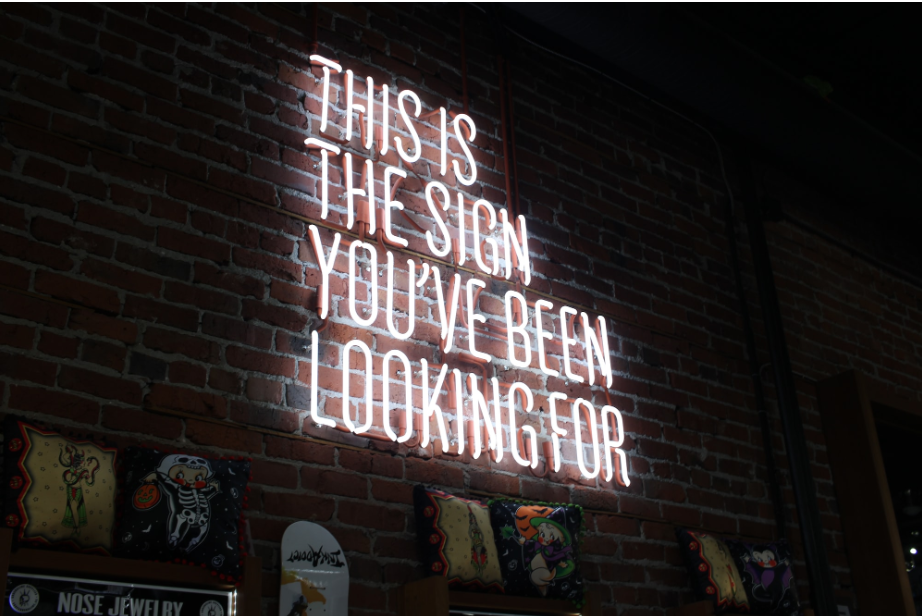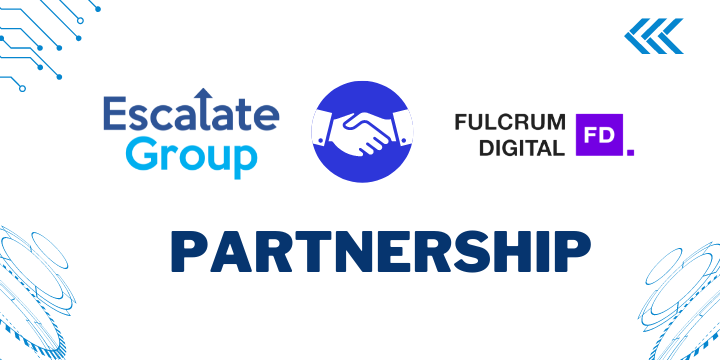Dec 12, 2023 | AI, Blockchain, Business Growth
Web3: Unlocking a New Era of Opportunities for Scaleups and Entrepreneurs
Web3 is unlocking a new era for scaleups and entrepreneurs, offering groundbreaking opportunities for growth and innovation. This latest evolution of the Internet emphasizes user empowerment through blockchain technology, revolutionizing how businesses interact, secure data, and embrace decentralization. Dive into our article to discover how this transformative shift can redefine your business strategy and open doors to new, exciting possibilities in the digital landscape.
Introduction: The Evolution of the Internet
In my over two decades of leadership in the tech industry, I’ve witnessed firsthand the Internet’s transformative power. From my early days launching and driving mobile connectivity in the telecommunications space to later connecting a billion users to the Internet with giants like Microsoft and Nokia, each phase of the Internet has been a journey of discovery and innovation. Today, as we stand on the brink of the next digital revolution – Web3 – I reflect on how this new phase is poised to redefine our approach to data control and privacy, unlocking unprecedented opportunities for scaleups, SMBs, and entrepreneurs, much like the previous shifts have done.
Web 1.0 to Web 2.0: The Shift from Static to Social
My journey in technology began in the era of Web 1.0 when the Internet was in its infancy. The landscape was vastly different – it was the age of static web pages, where users like us were mere consumers of content, limited to what was presented. Our primary mode of communication was through email, offering little in terms of interaction or engagement. As part of this era, I contributed to shaping the early Internet, focusing on mobile connectivity and creating and managing mobile digital content and services just beginning to find their footing in the world.
As the Internet evolved into Web 2.0, I was at the forefront, championing the rise of smartphones and cloud services. This was a transformative period marked by the emergence of social media platforms like Facebook (Meta) and Instagram. These platforms changed everything – they enabled users to share thoughts and images and interact in real time, fostering a more engaging and connected online experience. During this phase, I shifted to leveraging these new platforms and technologies to create more dynamic and interactive user experiences, significantly impacting how we connect, share, and do business.
The Limitations of Web 2.0: Centralization and Privacy Concerns
However, despite these advancements, the Web 2.0 era also brought challenges. The centralization of the Internet around a few tech giants raised issues around censorship, data privacy, and security. These companies dictate who can use their platforms and have extensive access to and control over users’ data. Additionally, the reliance on centralized servers makes the system vulnerable to attacks and failures.
Reflecting on my experiences with these industry leaders, I recognize the importance of addressing these challenges as we transition into the new era of Web3.
Web3: A New Era of Internet Freedom
Since starting Escalate Group in 2017, I’ve embraced the shift to Web3 – a new phase of the Internet that’s all about user empowerment and decentralized control. Web3, driven by blockchain technology, is changing how we interact and do business online. It’s about making data open, secure, and free from central control, something we’ve put into practice in our projects like the White Label Marketplace and Carbon Credits Platform.
Web3 lets users and businesses connect directly, cutting out intermediaries. This is clear in our work with digital tokens (NFTs) and decentralized finance (DeFi). For example, our NFT projects create unique digital assets and help communities.
The Impact of Decentralization: Beyond Just Cryptocurrency

Decentralization isn’t just a future idea – it’s happening now, especially with cryptocurrencies, DeFi, and NFTs. These are changing how we think about and use digital money and assets. The DeFi world, including new kinds of lending and trading, is growing fast. NFTs, like the popular CryptoPunks and Bored Apes, show the potential for digital ownership.
Our Web3 Innovation Studio is where we explore and demonstrate these new technologies. We’ve shown how NFTs can do more than trade digital art – they can support good causes and strengthen community ties. DeFi is also an area of focus for us, helping businesses understand and use these new financial systems to grow and innovate.
My journey from the early internet days to leading in the Web3 space reflects my ongoing commitment to innovation. Web3 is more than new tech; it’s a shift towards a more open and fair digital world. It’s a chance for businesses, especially growing ones, to make their mark in this exciting new era.
Harnessing Blockchain Data: The Value in Decentralization
Blockchain data is a versatile and valuable asset in the evolving digital economy. As we examine Web3, this data opens possibilities, particularly in enhancing and advancing Artificial Intelligence (AI). Drawing from my insights in “Navigating the Next Frontier: My Journey at the Intersection of AI and Blockchain in Business,” the convergence of blockchain’s scarcity and AI’s data abundance creates a strategic advantage in decision-making, offering fresh business perspectives.
Innovative tools are at the forefront of this synergy. The Graph, for example, excels in making blockchain data readily accessible and AI-friendly, a crucial step in leveraging this synergy for practical applications. Chainlink Labs extends this capability by connecting blockchain data with real-world inputs, enhancing the scope and accuracy of AI analyses. Ocean Protocol is pivotal in enabling data sharing and monetization, a crucial aspect of democratizing AI, as discussed in “Synergy between AI, Metaverse, Blockchain in Business.” Filecoin Foundation‘s ambition to become a repository for essential human knowledge aligns with this vision, supporting the governance and transparency needed in AI and blockchain interactions.
These tools and concepts represent the multifaceted ways blockchain data can be harnessed and underscore the importance of governance and transparency in managing AI behavior and ensuring trust and accountability, as highlighted in my articles. The integration of AI, Metaverse, and Blockchain, as reflected in diverse case studies like the Welwaze Medical, Inc. Journey and Virgin Mobile Latam‘s transformation, showcases the practical impacts of this synergy across industries.
As we embrace these opportunities, reflecting on the potential impacts and future use cases of AI, Metaverse, and Blockchain in various fields is crucial, inviting further exploration and innovation.
Opportunities for Scaleups and Entrepreneurs in the Web3 Era
A
Decentralized Finance (DeFi) revolutionizes access to funding for scaleups and SMBs. It offers innovative tools like peer-to-peer lending and diverse financial products, paving the way for more inclusive and adaptable financial solutions.
A
Non-fungible tokens (NFTs) open avenues for unique digital asset creation and ownership. Businesses can leverage NFTs for branding, securing digital rights, or creating exclusive customer experiences, thereby distinguishing themselves in the market.
A
Integrating AI with blockchain data offers robust insights for businesses. By analyzing trends, transaction patterns, and market sentiments reflected in blockchain data, companies can make more informed decisions, anticipate market shifts, and tailor their strategies accordingly.
A
Blockchain data provides a wealth of information invaluable for market research. AI models can analyze this data to understand customer behaviors, preferences, and the adoption rate of blockchain-based applications, enabling businesses to tailor their offerings effectively.
A
The transparent and immutable nature of blockchain ensures the security and authenticity of transactions. This builds trust among consumers and partners, which is vital for business growth and sustainability.
A
The decentralized nature of blockchain allows businesses to access a global data pool. This is particularly beneficial for market analysis and understanding international trends, enabling scaleups and SMBs to plan and execute global expansion strategies more effectively.
A
Tools like The Graph, Chainlink, and Ocean Protocol facilitate efficient data management and compliance with regulatory requirements. This not only reduces operational costs but also ensures businesses stay ahead in terms of compliance and data governance.
A
Combining AI and blockchain technology paves the way for new business models and revenue streams. The possibilities for innovative and sustainable business models are vast, from creating data marketplaces to offering AI-driven services.
By embracing these opportunities, scaleups and SMBs can position themselves at the forefront of the Web3 revolution, harnessing its potential to drive growth, innovation, and competitive advantage in the digital era.
As we stand at the brink of a new digital era, Web3 and AI are not just evolving the Internet. Still, they are laying the groundwork for a revolutionary phase of decentralized innovation. This era, as I’ve discussed in “We Live in an Age of Distributed Innovation,” is characterized by distributed innovation, where technology is accessible to more, opening avenues to address global challenges innovatively.
This integration signals a new world of possibilities in data analysis, decision-making, and market research. For businesses in general, it’s a call to action – to adapt and actively engage in this transformation. By embracing Web3, we’re not just adapting to technological changes but paving the way for innovative, data-driven strategies that will define the future of business and technology.
In this third phase of the Internet, marked by decentralized, peer-to-peer models and token-based ecosystems, the opportunities for scaleups, SMBs, and entrepreneurs are vast. Escalate Group is committed to leveraging this synergy between blockchain and AI. We see a future where blockchain’s transparency and AI’s analytical power combine to create more innovative, efficient, and ethical business models.
As we navigate this exciting journey, I encourage my peers, collaborators, and customers to join us in this exploration. Let’s invest in educational and experiential learning, participate actively in Web3 projects, and collaborate with incubators and accelerators. Together, we can harness the power of distributed innovation to create market-fit solutions that will shape our world.
The future is here, and it’s decentralized. It’s a future where the potential for growth, innovation, and efficiency is boundless, especially for those quick to embrace and harness the power of these emerging technologies.
Nov 14, 2023 | AI Transformation, Blockchain, Business, Metaverse
The synergy between AI, Metaverse, and Blockchain in Business
Hello there! Let’s take a journey together into the fascinating world where Artificial Intelligence (AI), Metaverse, and Blockchain are not just transforming businesses but also creating stories worth telling. As the CEO of Escalate Group, I’ve been at the forefront of this transformation. These technologies are more than just buzzwords; they’re reshaping how businesses operate, and I want to share some powerful stories with you.
The Welwaze Journey: Pioneering Health Tech with AI and Blockchain
Reflecting on our partnership with Welwaze Medical, Inc. in 2018, it was Alex Jiménez-Ness, the Founder and Executive Chairman, whose vision and openness to groundbreaking ideas laid the foundation for an impressive early proof of concept. Together, we ventured into uncharted territories of community engagement, decentralized data platform strategy, and data-driven algorithms. The new strategy resulted in a circular economy and a virtuous incentive cycle. The more individuals of a community contribute, the better off they and society are. It was a pioneering effort, leveraging early-stage exponential technologies to empower individuals to manage their health. I’m grateful for Alex’s commitment; it was a collaboration that showcased the power of exponential leadership and technological innovation in the early detection of breast cancer in the health tech industry.
Virgin Mobile Latam’s Transformation: A Leap into Data-Driven Mobile Services
Our journey with Virgin Mobile Latam (“VMLA”) was remarkable. As the largest and fastest-growing virtual mobile operator in Latin America, VMLA was at a crucial juncture. Our project was more than just a business collaboration; it was an expedition into the future of mobile services. By leveraging anonymized customer data with AI and Blockchain, we opened new doors for enhancing user experiences, especially in growth economies. Together, we brought value to VML responsible consumers through a behavioral risk score algorithm for 50,000 pseudo-anonymous records that took advantage of AI, blockchain, and Big Data mechanisms. This opened the opportunity for other vendors/partners to benefit from good new customers, and it was a testament to how advanced technologies like AI can redefine the landscape of mobile services, providing more personalized and enriched user experiences.
Revolutionizing Hollywood: The Film.io Story
The story of our engagement with Babieka Films, an International Film and TV Production Company, is not just about business transformation; it’s about changing the narrative in Hollywood. With the advent of Web3, AI, and Blockchain, traditional barriers are falling, giving rise to a new wave of global storytelling. Film.io, the world’s most powerful decentralized filmmaking ecosystem, acquired our work. This platform is placing Hollywood’s decision-making onto the blockchain, democratizing content creation, and empowering a new generation of storytellers with AI algorithms and blockchain incentives. It’s thrilling to see how these technologies are both tools and catalysts for creative and cultural evolution.
The yWhales Adventure: Redefining Business in the Metaverse
Let’s dive into the yWhales story, a chapter in our journey that truly exemplifies innovation. Our collaboration with yWhales began as an experiment in the dynamic world of Ethereum and Polygon smart contracts and NFTs. But that was just the beginning. We quickly embraced the advancements of the Solana and Metaplex NFT ecosystem, rolling out the Gen II collection. This wasn’t just tech evolution but a strategic move to propel the yWhales web3 business community into a new era.
Today, we’re exploring the frontiers of immersive technologies. Imagine setting up a business presence in this immersive world within minutes – that’s the breakthrough we’re achieving. The engagement and growth within the yWhales community have been nothing short of inspiring. It’s a vivid demonstration of Metaverse’s potential for business innovation.
Extended Reality Technologies have been our compass in this exploration, blurring the lines between physical and digital realms and offering immersive experiences that are transformative. Take Mark Zuckerberg’s AI-powered virtual world creation – it’s a perfect example of how AI is a key architect of the Metaverse.
The revolution goes deeper with generative AI. It’s about creating new environments and experiences spontaneously, breaking free from traditional design constraints. And underpinning all this is the power of AI supercomputers, like Meta’s recent unveiling, the backbone of the Metaverse’s expansive universe.
The Triumvirate in Action: Insights from Fulcrum Digital
Our partnership with Fulcrum Digital Inc, highlighted at their TechxChange event in NYC, brought the dynamic trio of AI, Metaverse, and Blockchain to life. Engaging with experts like Rajesh Sinha, Sachin S Panicker, and Christopher Yin, coupled with real-world customer experiences, brought to light the tangible impact of this technological trio.
A
AI is the driving force behind the Metaverse, creating immersive experiences without traditional design constraints. Chris’s Meta-personas in insurance showcased how AI personalizes customer interactions in the Metaverse.
A
Blockchain acts as the safeguard within the Metaverse, protecting identities and enabling secure transactions. For example, implementing NFTs in business networks leverages blockchain technology’s trust-building, security, and transparency features. It creates a system of verifiable digital ownership, demonstrating its potential to revolutionize various industries.
A
The synergy of AI, Metaverse, and Blockchain is reshaping businesses. From Microsoft and OpenAI multi-year partnership with implications on the Industrial Metaverse and Deutsche Bank and NVIDIA‘s Omniverse collaboration to accelerate the use of AI and machine learning (ML) in the financial services sector to Fulcrum Digital Inc‘s Ryze AI platform for the insurance sector, we see a new era of decision-making, operational efficiency, and stakeholder’s experiences.
The Fulcrum Digital event highlighted a key insight: AI, Metaverse, and Blockchain are not just trendy terms; they’re transformative forces in business, enhancing customer experiences and revolutionizing traditional models. Imagine AI as the brain powering innovation, the Metaverse as the body creating experiences, and Blockchain as the heartbeat ensuring trust. Together, they redefine business operations, storytelling, and service delivery, marking a new digital era.
From TechxChange to AI Advancements: OpenAI’s New Era
Following the discussions at the Fulcrum Digital TechxChange, the recent announcement by OpenAI about its GPT-4 Turbo model resonates deeply with me. This development in AI technology, particularly the creation of custom ChatGPT chatbots, vividly demonstrates the rapid evolution in the AI space.
Just last week, as OpenAI unveiled this powerful new tool, it was a moment that encapsulated the essence of our conversations at TechxChange. The ability to tailor AI chatbots for specific uses echoes the themes of personalized digital experiences and business-specific solutions we experienced. It’s fascinating to see how these advancements align with our insights on Meta-personas, where AI’s role in crafting unique customer experiences was highlighted.
What strikes me most is the pace at which AI is advancing. OpenAI’s move to make its offerings more accessible and affordable shows a clear commitment to staying at the forefront of the AI race. This mirrors our sentiments at the event – being adaptive and forward-thinking is crucial in this digital era. With major players like Anthropic, Google, and Meta in the mix, the AI landscape is not just growing; it’s thriving with competition and innovation.
OpenAI’s announcement also reflects a growing trend: AI is no longer an exclusive domain for tech giants. With over 92% of Fortune 500 companies utilizing these platforms, AI’s reach across industries like finance, legal, and education underscores its transformative potential. This democratization of AI technology is exactly what we envisioned – a world where AI is integral to every business, enhancing operations and customer interactions.
As we continue to explore the realms of AI, Metaverse, and Blockchain, announcements like OpenAI’s GPT-4 Turbo serve as exciting milestones. They validate our discussions and predictions and fuel our imagination for what’s next in this ever-evolving journey of digital transformation.
In the confluence of AI, Metaverse, and Blockchain, we’re witnessing a revolution reshaping the business world, offering innovative solutions and immersive experiences. Our journey with Welwaze, Virgin Mobile Latam, Film.io, and yWhales, along with insights from the Fulcrum Digital TechxChange, showcases the transformative potential of these technologies. The advent of OpenAI’s GPT-4 Turbo marks a significant leap forward, emphasizing the importance of personalized, business-specific applications.
This exploration into the digital frontier is just the beginning, inviting us to share insights and collaborate on the future’s blueprint. As we navigate this evolving landscape, our collective efforts will shape an era where technology enhances every facet of business and human connection. Let’s continue this dialogue, embracing AI, Metaverse, and Blockchain’s possibilities for a more innovative and interconnected world.
Oct 4, 2023 | AI, Blockchain, Innovation, Transformation
My Journey at the Intersection of AI and Blockchain in Business
Delve into a firsthand exploration of the powerful fusion of AI and Blockchain in the business landscape. Learn from personal experiences, understand the synergy between scarcity and abundance, and witness the democratization of AI. From enhancing compliance and transparency to redefining sectors like service and manufacturing, discover how these exponential technologies are reshaping business paradigms. Join this transformative journey to future-proof your enterprise.
Introduction: A Personal Reflection on Exponential Technologies
I wrote an article for ExO Insight Exponential Technologies in May: The Intersection of Blockchain and AI. Since then, I’ve witnessed an unprecedented acceleration in technological innovation. The merger of Blockchain and Artificial Intelligence (AI) has brought about a revolutionary shift that’s too compelling to ignore. If you’re a CEO of a mid-size business like many of the colleagues I’ve spoken to, you’ll find that the union of blockchain’s unparalleled security and transparency with AI’s intelligence creates incredible opportunities. These opportunities can transform your focus on growth, innovation in operational efficiency, and future-proofing your business.
Navigating the Duality: When Scarcity Meets Abundance
I recently tuned into an Ark Investment Bitcoin podcast, where a fascinating concept caught my attention: “The scarcity of Bitcoin is hitting the infinity of AI.” Think about it. AI can mass-produce endless content and analyze data sets that are virtually infinite. Meanwhile, the scarcity inherent in blockchain—especially visible in Bitcoin—brings value to each piece of data or content. This interplay between scarcity and abundance can be a strategic lever for decision-making. For instance, you can use blockchain to certify the quality and origin of products in your supply chain. Simultaneously, AI algorithms can streamline shipping routes and reduce transportation costs, enhancing operational efficiency.
Are Blockchain and AI Rivals or Teammates? A Case for Synergy
One of the questions I frequently consider is whether blockchain and AI are competitors or collaborators. What I’ve found is they are most effective as allies. For those focused on innovation, imagine blockchain enabling a new democratization of AI algorithms. Your organization could offer specialized AI services in a blockchain-secured marketplace, opening new revenue streams and making high-end AI services accessible to the masses.
To me, one of the most transformative applications of AI is around governance and compliance. Let’s say you operate in the healthcare industry. Smart contracts powered by AI algorithms could automatically enforce HIPAA regulations or GDPR compliance, thereby mitigating risks associated with human errors or oversight. This is a tangible solution to the constant struggle to ensure regulatory compliance.
I find the ability of blockchain to audit AI behavior nothing short of groundbreaking. This level of transparency is incredibly empowering for CEOs who need to report to stakeholders and regulators. Your company could, for example, maintain an immutable ledger of all AI-powered financial transactions, implanting an unparalleled level of trust and operational efficiency.
My Personal AI: A Lifelong Learning and Defensive Tool
The rapid developments in AI have made me realize that each of us needs a personal AI—not just to foster a growth mindset but as a defense mechanism. With platforms like ChatGPT evolving to include real-time internet browsing capabilities, we can leverage AI for a plethora of business functions—from quick market research to instant customer service responses. For example, you could use a personal AI to perform a sentiment analysis on customer reviews. This can offer valuable insights into your product’s strengths and weaknesses, helping you make data-driven decisions. But with great power comes great responsibility—it’s our duty to ensure that we utilize AI responsibly, mitigating the risks of misinformation.
Making it Real: Practical Applications Across Sectors
A
I’ve found that applying AI and blockchain technology in the service sector can transform customer experiences. For example, an AI algorithm could predict customer needs based on past interactions, and thanks to blockchain, these transactions can be securely and transparently recorded. This paves the way for efficient, personalized customer service that can significantly impact your bottom line.
A
If you’re in manufacturing, consider the profound implications of integrating AI and blockchain in your supply chain. I’ve seen AI applications that can predict machine failures while blockchain can verify the authenticity of replacement parts. The two together enhance the supply chain’s reliability and integrity, effectively augmenting operational efficiency.
Conclusion: The Time for Action is Now
As a CEO deeply committed to growth and responsibility, I see the convergence of blockchain and AI as a toolkit that addresses our common challenges.
From identifying growth opportunities to compliance oversight. As we embrace these technologies, we’re not just solving today’s problems but shaping the industry’s future. And in doing so, we’re actively future-proofing our business.
Jul 21, 2023 | Blockchain, D2C, Digital Collectible, NFT, SocialCommerce, Web3
In the ever-evolving landscape of e-commerce, Direct-to-Consumer (D2C) companies are constantly seeking innovative ways to engage with their customers and enhance their business models. One such avenue that holds immense potential is Web 3.0, which encompasses a range of technologies and concepts that can revolutionize the D2C space.
By exploring and embracing the opportunities presented by Web 3.0, D2C companies can unlock new possibilities, drive growth, and gain a competitive edge in the market.
1. Research and understand Web 3.0 technologies.
To effectively leverage Web 3.0, D2C companies must understand the underlying principles and technologies. This includes researching and familiarizing themselves with blockchain, decentralized finance (DeFi), non-fungible tokens (NFTs), and other related innovations. By understanding these technologies’ potential applications and benefits, D2C companies can make informed decisions about incorporating them into their operations.
2. Identify relevant use cases.
D2C companies can explore many use cases where Web 3.0 can add value to their business models. For instance, leveraging blockchain technology can enable them to create more secure and transparent supply chains. By implementing blockchain-based solutions, companies can enhance the traceability and authenticity of their products, providing customers with greater confidence in their purchases.
Additionally, D2C companies can delve into the realm of NFTs to explore new revenue streams. By creating unique and limited-edition digital assets tied to their brand or products, they can tap into the growing market of digital collectibles and create a sense of exclusivity for their customers.
3. Develop strategic partnerships.
To fully leverage the potential of Web 3.0, D2C companies should consider forming strategic partnerships with relevant players in the ecosystem. By collaborating with blockchain companies, DeFi platforms, or other emerging players, D2C companies can access expertise and resources that will help them navigate the complexities of Web 3.0 and unlock new opportunities. These partnerships can foster innovation and facilitate the development of cutting-edge solutions tailored to the specific needs of D2C businesses.
4. Pilot and iterate.
Once a potential use case has been identified, D2C companies can embark on a pilot phase to test and refine their Web 3.0 solutions. Companies can iterate on their products or services by launching small-scale initiatives and gathering user feedback to optimize functionality and user experience. This iterative approach allows them to fine-tune their offerings and address potential challenges before scaling up.
Real-world examples of D2C companies leveraging Web 3.0:
1. Nike, a leading athletic footwear and apparel brand, has partnered with blockchain company VeChain to enhance the authenticity and traceability of its products. Through blockchain technology, customers can verify the origin and legitimacy of Nike’s products, thereby mitigating the risks of counterfeit goods.
2. LVMH, the renowned luxury goods conglomerate, has collaborated with blockchain startup Arianee to develop a secure and transparent platform for luxury goods. By leveraging blockchain’s immutable and decentralized nature, LVMH aims to provide customers with verified product information, ownership history, and exclusive experiences tied to luxury purchases. More info
3. Unilever, a global consumer goods company, has initiated a pilot project with blockchain startup Provenance to track and verify the sustainability of its tea supply chain. By utilizing blockchain technology, Unilever can ensure the transparency and integrity of its sustainable sourcing practices, thus building trust and credibility with socially conscious consumers. More info
Feb 22, 2023 | Engagement, Agility, Blockchain, Digital Asset, Experimentation, Innovation, loyalty
In recent years, blockchain technology has been making waves in various industries, offering innovative solutions that can give companies a competitive edge. One area where blockchain is making a significant impact is in the world of NFTs (non-fungible tokens). NFTs are digital assets that are unique, non-interchangeable, and cannot be replicated. They have several properties that can change traditional marketing practices. In this blog post, we’ll explore how NFTs can potentially revolutionize branding, channels, pricing, and promotions in the marketing world.
NFTs Revolutionizing Marketing Mix
First and foremost, NFTs’ digital nature allows for a new level of flexibility and versatility in branding. Companies can now create unique digital identities for their products and services that can’t be replicated or counterfeited. These digital identities can then be used to create unique and compelling stories that can engage customers and build brand loyalty. Additionally, NFTs can be used to develop limited-edition digital items, adding a level of exclusivity and rarity that can drive demand and increase perceived value.
NFTs also open up new channels for marketing, such as online marketplaces and social media platforms. These new channels can provide transparency and trustworthiness that traditional marketing channels can’t match. NFTs can also be used to create new and innovative pricing models, such as dynamic pricing, where the price of an NFT is determined by market demand.
NFTs can also revolutionize promotions. Companies can now create special promotions, such as limited-time offers or exclusive deals, that can only be accessed by owning a specific NFT. This creates a new level of engagement and loyalty among customers, who are now incentivized to hold and collect specific NFTs to take advantage of these promotions.
However, it’s important to note that several short- and long-term issues will significantly impact the usefulness and attractiveness of NFTs in marketing and the broader world. For example, competitive dynamics, the need for experimentation and ease of use, creator royalties, and the risk of bad actors will all need to be addressed as NFTs become more mainstream.
Unlocking the Potential of NFTs with Escalate Group
In conclusion, NFTs have the potential to change traditional marketing practices in several ways. However, it will take time and experimentation to fully realize the potential of NFTs.
Our company, Escalate Group, has a Web3 innovation studio that can assist businesses in identifying Blockchain web3 business opportunities, gaining a competitive advantage, and producing exceptional results. As NFTs continue to evolve and gain mainstream acceptance, they will become an essential part of a brand’s overall digital experience and drive new marketing practices. So, keep an eye on this technology, as it will be a disruptor in the future!
*I used OpenAI’s GPT-3 and Grammarly tools to generate some of the content for this post.
Nov 11, 2022 | Web3, Blockchain, Community and Crowd, Competitive edge, Disruption, Experimentation, Innovation, Jobs to be done
During the fall of 2014, attending the executive program of Singularity University at the heart of the Silicon Valley, the idea that Blockchain would be as significant to the growth of the internet in the next fifteen years as the internet has been in the previous 25 years started to grow in my mind.
Two market cycles after, I have seen many of the world’s best minds and billions of dollars in investment pouring into the space to figure out how to use the technology to make a fully digital society a reality. The adoption of Bitcoin has increased its positioning as a store of value; smart contracts have enabled crowdfunding, stablecoins, non-fungible tokens (NFTs), and Decentralized finance (DeFi).
Companies in various industries use blockchain to streamline processes and foster greater transparency and trust. According to Fortune Business Insights, the global blockchain market is projected to grow from $7.18 billion in 2022 to $163.83 billion by 2029, at a CAGR of 56.3% in the forecast period.
Blockchain is more than Bitcoin, Stable Coins, NFTs, DeFi, and Crypto.
Considering the pandemic, we have seen that the two main factors driving the expansion of the blockchain market are the financial services sector’s competitiveness and the health sector’s digitalization. Also, growth is fueled by the increased demand for data security, and there is already noticeable progress in the supply chain, gaming, music, and the arts.
Our Web3 innovation practice has been helping firms in the fintech, financial services, energy, healthcare, entertainment, manufacturing, and telecommunications sectors to assess the impact of blockchain and other exponential technology and trends on their business, develop integrated programs to enhance their current business models, create new ones, and gain and track their competitive advantages.
We know from experience that blockchain is still in its infancy and that it has yet to demonstrate its potential to transform the current internet into the internet of the future. But every business needs to dip a toe into the web3 wave. While in most businesses, it might still be early to commit entirely, there are certain areas where the race has already started.
Why Blockchain?
We are moving from the sharing economy into the ownership economy with new ways people organize around a project; communities and decentralized organizations will play a critical role. Blockchain technology becomes essential for business and society if you believe that material contributions should have clear ownership and provenance.
Blockchain is a platform for disintermediation; it is about trust, decentralization, and ownership. Consumers can own their data, and the technology enables tools to reward contributors and user behavior, boosting creativity, collaboration, and digital communities.
Communities are starting to engage their members, simplifying the technology and the user experience, and from there, they are beginning to explore opportunities. Therefore, adoption driven by digital communities will be critical and effective.
When technology is simple to use and solves a real problem, it is quickly embraced by the public. As it is, blockchain will not be an exception. Businesses must explore, build, measure, learn, and repeat to develop the skills required to flourish in the web3.
How to gain web3 competitive edge?
Below are the components of a disruptive innovation system to help organizations embrace blockchain disruption, gain competitive advantages, and make web3 happen.
- Begin with a Massive Transformative Purpose that can be taken by your organization and your community or one that can draw a new community.
- Proactively and pragmatically assess market trends impacting your business to identify opportunities where trust, ownership, and disintermediation have the potential to change the future of your industry.
- Leverage your Purpose, develop relationships, and nurture community; this way, the right people will find you.
- Engage your community, and educate yourself on web3 to better identify the problems your organization can solve and the jobs to be done with the customer at the core.
- Set aggressive objectives and 3-5 measurable key results (OKRs), run experiments, fall fast, and learn quickly.
- Establish and maintain a business rhythm and help your team to identify what they need to create new business models and monetization mechanisms.
- Use data, dashboards, and real-time information to make informed decisions about where and how to invest across the web3 innovation portfolio.
- Understand and measure your key success factors (KSFs), and hold yourself and your team accountable. Identify the #1 most prominent specific and measurement activity to success.
- Wash, rinse, and repeat; and make sure you extend your web3 disruption innovation culture.
Those who don’t start climbing the web3 learning curve may miss the most significant value-creation opportunity of our lifetimes, just as many people did during the transition to the world wide web in the 90s and the second wave during the 00s, where the user-generated content business models emerged.
If you have any comments or suggestions or would like to continue the conversation, do get in touch with us.





